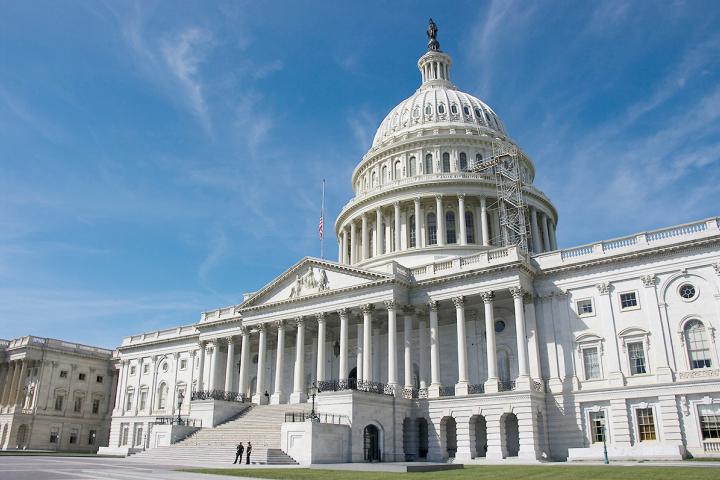On January 19th, the 33rd anniversary of Kashmir Exodus Day, which marks the forced expulsion of Kashmiri Hindus from their ancestral homeland in the Kashmir Valley, the Hindu American Foundation hosted a closed-door Congressional briefing featuring American Enterprise Institute Senior Fellow Dr. Michael Rubin and foreign affairs journalist Aditya Raj Kaul, himself from the Kashmiri Hindu community.
Drawing on both their scholarship and on-the-ground experiences in Kashmir and surrounding nations, Dr. Rubin and Mr. Kaul discussed the security situation in Kashmir before and after the abrogation of Articles 370 and 35A, human rights changes, and the necessity of strong US-India relations.
The panelists also offered insights on the implications of India’s decision to host the G20 Summit in Kashmir later this fall.
Moderating the panel was HAF Managing Director of Policy and Programs Samir Kalra, Esq.
Commending India’s decision as G20 president to host the November G20 Summit in Kashmir, Mr. Kaul observed:
“If Jammu and Kashmir is an equal state or Union Territory, as compared to perhaps New Delhi, or Mumbai, Maharashtra, or any other part of the country, it has to be treated equally.”
Mr. Kaul also noted the significance of opening Kashmir to the rest of the world, so that foreign dignitaries may, “witness on the ground what the situation really is. Because a lot of perception building happens from what you see on television, on social media, or from somebody else’s eyes instead of yours. But once you’re on the ground, you get to witness what actually is happening.”
Dr. Rubin agreed, noting that, “The importance of having the summit in Kashmir is it will be a wake up call to the reality of Kashmir.”
Reflecting on his fall visit to Kashmir, Dr. Rubin shared:
“I was expecting to see a heavily militarized presence. That’s not what I saw. I’ve been in enough places, be it the Taliban in Afghanistan, be it Saudi Arabia, the Islamic Republic of Iran, Syria, under Assad, Turkey, Azerbaijan, that I understand what a police state is, and what tension is on the ground. That’s not what I saw in Kashmir. What I saw was a collective sigh of relief. At midnight the roads were actually crowded, the restaurants were full, people weren’t afraid to be out after dark. I mean, that is the best metric you can get that things were improving.”
Rubin noted that when foreign dignitaries descend on Kashmir later this fall, “It will be important in correcting perceptions with regard to Kashmir, because people can talk to Kashmiris themselves; they don’t need to be fed propaganda by others.”
In addition to discussing how the G20 Summit signals Kashmir’s promising future, the briefing also touched on recent human rights changes in Kashmir.
Mr. Kaul described how economic opportunities for Scheduled Castes have improved since Kashmir’s laws have aligned with federal India law:
“[Article 370] actually said that these people can only be sanitization workers and sweepers, they cannot get any other government job, even if they are educated, even if they are any PhDs or engineers, even if they travel to US and get the best education from MIT, Stanford, or elsewhere. If they return to Kashmir, they can only be sanitization workers or sweepers. That is what the law actually said, and that is what Article 370 guaranteed. So I think it was in the best interest of each and every citizen of India and Jammu and Kashmir that 370 went away.”
Both panelists were cautious to note, however, that external security threats still remain in Kashmir.
“Pakistan is the gatekeeper to terrorism…it needs to set its house in order” Dr. Rubin asserted. Mr. Kaul concurred, “It’s not just the Hindu minorities who are victims of the Islamist terror. Muslims are also victims of Islamist terror. Muslims, who are residents of Kashmir and who are Indians first, have completely been brutally attacked, tortured and killed only because they consider themselves Indians first and the belief in secularism they believe in living with other communities, including Hindus, Sikhs, etc.”
A thriving Kashmir “creates a fundamental threat to the legitimacy of Pakistan and its military hierarchy, which has spent so much time and effort trying to distract people with the India Kashmir issue,” warned Rubin. He urged the policymakers in attendance not to “ fall victim to the squeaky wheel syndrome with regard to Pakistan.”
Commenting on the panel as a whole, HAF Managing Director Samir Kalra said: “We’re grateful to Michael and Aditya for providing important insights regarding the on the ground realities in Kashmir and for providing tangible takeaways for policy makers on how to effectively deal with India and the broader region on issues of terrorism, security, and economic development.”
About the Panelists
Dr. Michael Rubin is a senior fellow at the American Enterprise Institute, where he specializes in Iran, Turkey, and the broader Middle East. A former Pentagon official, Dr. Rubin spent time with the Taliban before 9/11 and has lived in post-revolution Iran, Yemen, and both pre- and postwar Iraq. For more than a decade, he taught classes at sea about the Horn of Africa and Middle East conflicts, culture, and terrorism, to deployed US Navy and Marine units. He also recently returned from a fact-finding trip to Kashmir.
Aditya Raj Kaul is a Delhi-based journalist with over 15 years of experience covering breaking news, foreign affairs and media leadership. He currently serves as the Executive Editor for TV9 Network for National Security and Strategic Affairs and has held several positions with a number of other news channels including the Canadian Broadcasting Network, CNN-News 18, Times Now, and many others. He and his family were among the more than 350,000 Kashmiri Hindus, known as Kashmiri Pandits, forced out of the Valley in the 1990 ethnic cleansing sponsored by Pakistan supported militant groups.






































